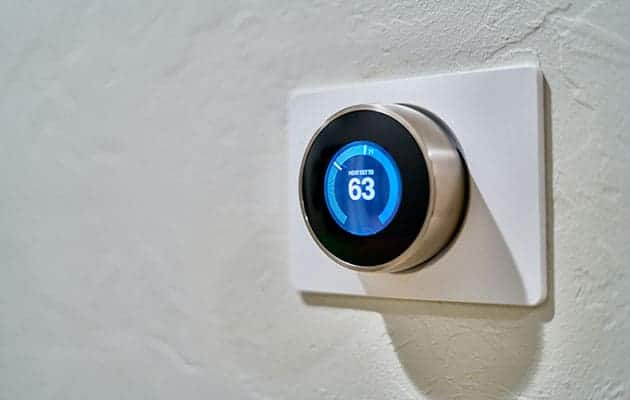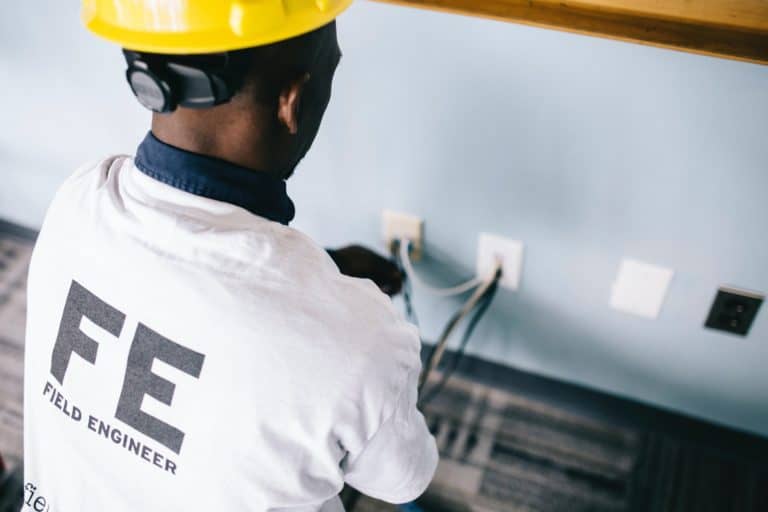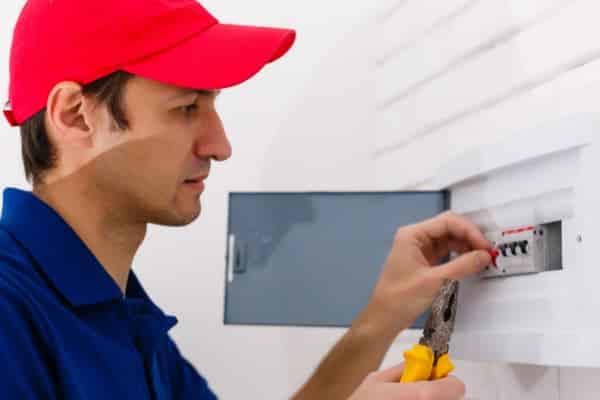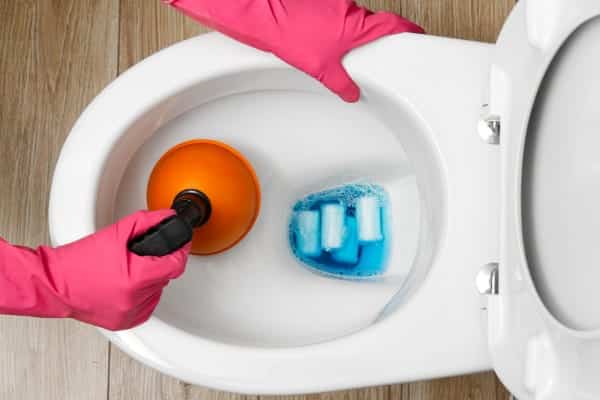Find My Local Expert Is your Heater Energy-Efficient? Most people...
Read More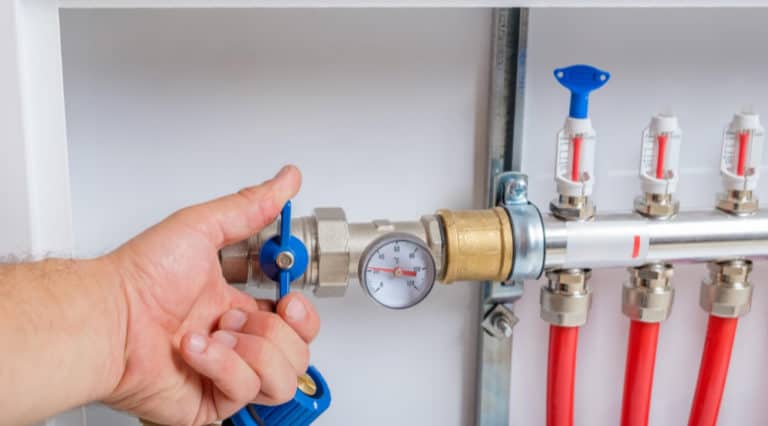
Boiler Losing Pressure? Here’s How to Fix It!
For homes with gas, a boiler is often the most cost-effective way of getting hot water and heating in the property. This is achieved by way of a boiler, which heats water as it passes through the boiler using a gas-fueled flame.
Depending on the type of boiler and the system employed, heated water may be fed directly to the taps as it is needed, or it may be sent to an insulated cistern where it will be stored until it is needed. The situation with central heating is more consistent, however. The home will have strategically placed radiators whose job it is to transfer the heat from hot water piped around the system to the ambient room temperature.
The water that is piped around the property is kept within in a particular range of pressure and temperature to ensure that a sufficient amount of heat is carried to each radiator, with the radiators themselves being adjustable to allow for the fine tuning of the amount of heat in a given room or area of the house.
Central heating using a boiler tends to take a little while to get warmed up, which is something electric heaters are better at, however boilers are considerably cheaper to run than electric heaters, so having to wait five minutes for your central heating system to get going is usually worth the trade off. And, as most boilers can be set on a timer to come on at a specific time, most homes find they rarely have to turn their central heating on manually anyway.
Why Do I Need Boiler Pressure?
There are a few reasons why boilers need a certain amount of pressure to operate effectively. One of them is the simple fact that denser matter transfers heat better, and a higher (than the average air pressure around you) water pressure in your central heating system means more density. You can picture this by imagining a pocket of hot air and a glowing hot metal ball. Take away the heat source and the hot air would cool very quickly, but the hot metal ball would retain its heat for a while after.
Another reason is movement. The hot water in your central heating system has to be moved around the property, and even in single story homes, this will involve pushing water up, against the pull of gravity.
This task is made easier by water pressure, which ensures that the water in the pipes fills all the available space in the system, making moving it around the system more a matter of creating a current, rather than actually pumping water uphill.
The biggest reason that boiler pressure is important, however, is the fact that the system itself is sealed. There are vents or valves to relieve pressure if it gets too high, and no way to let air in if it gets too low. This is fine if the internal water pressure is kept stable and within an acceptable range, but if it fluctuates, it causes additional stress on the system as things expand and contract with temperature, which could result in damage to a pipe or joint, not to mention the boiler itself.
Does Boiler Pressure Drop?
Boiler pressure does drop in some cases, and when it does it is often indicative of a problem that needs fixing—though not always.
Why is Losing Boiler Pressure a Bad Thing?
As we mentioned above, denser matter retains heat better. The job of the hot water in your heating system is essentially to act as a heat container, holding on to as much heat as possible as it is transferred through the central heating pipes to a radiator, where it can shed some of the heat before moving on. The more heat your system can transfer, the more efficient it is.
If your boiler pressure is low, the heat-carrying capacity of the water is reduced, but the amount of fuel used will not be reduced with it. In other words, it will cost you the same on your gas bill, but you’ll be getting less heat. Or you’ll be paying more because you’re turning the heating up to get the desired temperature.
What Causes Boiler Pressure to Drop?
The most obvious cause of a pressure drop in your boiler is a leak somewhere in the system. A leak like this would likely be very small (you’d certainly notice it if it were big), and may go for very long periods undetected. Very small leaks may be practically undetectable, as the small amount of hot water that leaks out will evaporate before it has a chance to drip or leave a wet patch that you might notice. Still, whether the leak is noticeable or not is irrelevant, the result is still the same—lower boiler pressure.
Another potential cause is air getting through the water feed itself. The process of treating water and pumping it at high pressure to millions of homes is an energetic one, so it’s not surprising that air can get trapped with the water. It is even possible for the pressure to drop as a result of the internal surfaces of the radiators rusting.
Finally, probably one of the most common causes of boiler pressure dropping is the result of someone bleeding their radiators without letting more water into the system. Bleeding is necessary to get air out of the system for the reasons we mentioned above about heat-carrying capacity, but letting anything out of the system reduces the internal pressure, so it is necessary to let more water in during the bleeding process. Failure to do that will result in low boiler pressure.
What Should My Boiler’s Pressure Gauge Read?
It is important to note that, while we can give an answer to this question that should hold true in almost all situations, you should always consult your specific boiler’s instruction manual before deciding that your boiler is over or under-pressured. With that being said, as a general rule, the pressure of your boiler should be between 1.5 and 2 bars.
If your pressure drops below 1.5, you will likely be losing out on heating capacity which. And, as we mentioned, this won’t result in reduced gas bills, just reduced heating.
On the other hand, if you start straying over the 2 bar mark, you run the risk of damaging your system. Remember, the water being piped around there is hot. You do not want to create a high-pressure leak of scalding hot water in your home.
How to Deal High or Low Pressure in my Boiler
This one is tricky, since much of what needs to be done will require actions specific to your boiler system that will likely have been determined by the plumber who installed it. For example, dealing with low pressure—assuming you have ensured that there are no leaks causing the low pressure—is as simple as opening the inlet valve and letting water in, which is often as easy as turning a tap. However, while your boiler manual will be able to tell you where on the boiler the inlet pipe is plumbed in, it can’t tell you where your plumber put the cut off valve.
Similarly, if your system is over pressurised, you need to release some of that pressure, but the place to do will depend on your central heating system. You may find that you have simply to bleed a radiator until the pressure is within an acceptable range and try not to make a mess in the process.
How to Deal High or Low Pressure in my Boiler
Pressurising your boiler means letting more water into the system, but there is plenty to be aware of before you begin.
Firstly, if you have a leak, you will need to get that repaired before pressurising the boiler. Secondly, you will need to know where the inlet valve is. In the vast majority of cases, the technician who installed the boiler will have put the valve just below the boiler, but the valve is not part of the boiler itself and could theoretically be put anywhere. If it is not immediately obvious where the valve is, find out which pipe coming out of your boiler is the inlet pipe and follow it back until you find a tap or valve.
Once you have found the valve, it is important to keep a close watch on the pressure as you let water in, as too much pressure can damage the system. Also remember that water expands when heated, so don’t pressurise your boiler right up to the maximum pressure rating because it will climb above that when the boiler switches on.
Hire an Expert!
While problems with your boiler’s pressure are not always indicative of a serious problem, a serious problem can quickly arise if you over pressurise your boiler, or pressurise it when there is a leak somewhere. Generally speaking, the best course of action is to get someone who knows what they are doing to take care of it. We’re happy to give you advice on how to do it here, but we strongly recommend you hire an expert instead.
You May Also Like...
How To Safely Identify Electrical Faults in Your Home
Find My Local Expert How To Safely Identify Electrical Faults...
Read MoreFree Storage Heaters for UK Pensioners
Find My Local Expert Free Storage Heaters for UK Pensioners...
Read MoreEasy Steps to Reset your Circuit Breaker
Find My Local Expert Easy Steps to Reset Your Circuit...
Read More6 Reasons Why Your Toilet Bowl Isn’t Flushing
Find My Local Expert 6 Reasons Why Your Toilet Bowl...
Read MoreBoiler Pressure Still Dropping?
My Trusted Expert Guarantee
Experts Have Been Vetted & Approved
